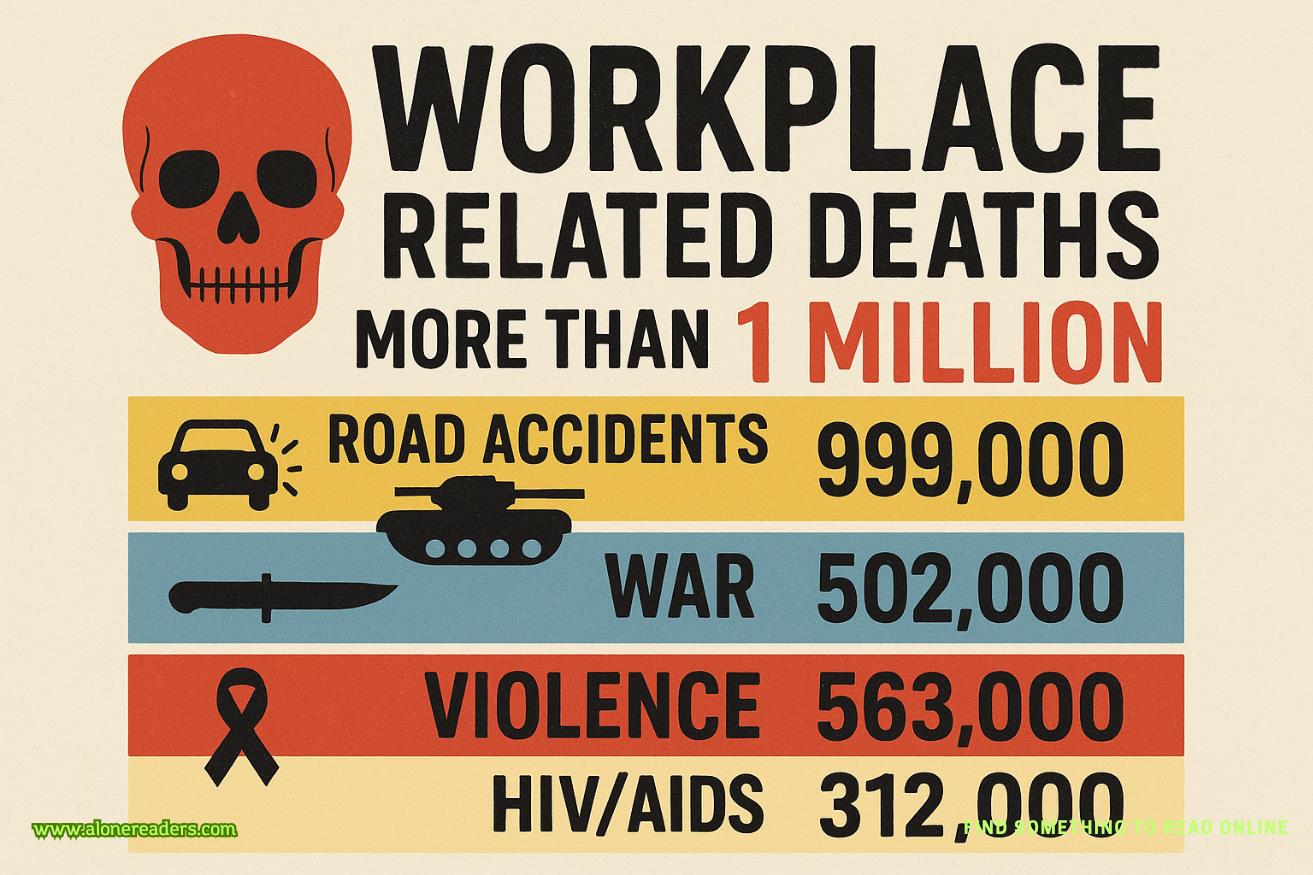Page 20 of Lethal White (Cormoran Strike 4)
Page List Listen Audio
It was the precise relationship between the strangled child and Chiswell’s case of blackmail that was preoccupying Strike, even though, on the face of it, the connection was obvious: it lay in the fact of Jimmy and Billy’s brotherhood. Now somebody (and Strike thought it overwhelmingly likely to be Jimmy, judging from Robin’s account of the call) seemed to have decided to tie Billy’s story to Chiswell, even though the blackmailable offense that had brought Chiswell to Strike could not possibly have been infanticide, or Geraint Winn would have gone to the police. Like a tongue probing a pair of ulcers, Strike’s thoughts kept returning fruitlessly to the Knight brothers: Jimmy, charismatic, articulate, thuggishly good-looking, a chancer and a hothead, and Billy, haunted, filthy, unquestionably ill, bedeviled by a memory no less dreadful for the fact that it might be false.
They piss themselves as they die.
Who did? Again, Strike seemed to hear Billy Knight.
They buried her in a pink blanket, down in the dell by my dad’s house. But afterwards they said it was a boy…
He had just been specifically instructed by his client to restrict his investigations to London, not Oxfordshire.
As he checked the name of the station at which they had just arrived, Strike remembered Robin’s self-consciousness when talking about Raphael Chiswell. Yawning, he took out his mobile again and succeeded in Googling the youngest of his client’s offspring, of whom there were many pictures going up the courtroom steps to his trial for manslaughter.
As he scrolled through multiple pictures of Raphael, Strike felt a rising antipathy towards the handsome young man in his dark suit. Setting aside the fact that Chiswell’s son resembled an Italian model more than anything British, the images caused a latent resentment, rooted in class and personal injuries, to glow a little redder inside Strike’s chest. Raphael was of the same type as Jago Ross, the man whom Charlotte had married after splitting with Strike: upper class, expensively clothed and educated, their peccadillos treated more leniently for being able to afford the best lawyers, for resembling the sons of the judges deciding their fates.
The train set off again and Strike, losing his connection, stuffed his phone back into his pocket, folded his arms and resumed his blank stare at the dark window, trying to deny an uncomfortable idea headspace, but it nosed up against him like a dog demanding food, impossible to ignore.
He now realized that he had never imagined Robin being interested in any man other than Matthew, except, of course, for that moment when he himself had held her on the stairs at her wedding, when, briefly…
Angry with himself, he kicked the unhelpful thought aside, and forced his wandering mind back onto the curious case of a government minister, slashed horses and a body buried in a pink blanket, down in a dell.
21
… certain games are going on behind your back in this house.
Henrik Ibsen, Rosmersholm
“Why are you so busy and I’ve got bugger all to do?” Raphael asked Robin, late on Friday morning.
She had just returned from tailing Geraint to Portcullis House. Observing him from a distance, she had seen how the polite smiles of the many young women he greeted turned to expressions of dislike as he passed. Geraint had disappeared into a meeting room on the first floor, so Robin had returned to Izzy’s office. Approaching Geraint’s room she had hoped she might be able to slip inside and retrieve the second listening device, but through the open door she saw Aamir working at his computer.
“Raff, I’ll give you something to do in a moment, babes,” muttered a fraught Izzy, who was hammering at her keyboard. “I’ve got to finish this, it’s for the local party chairwoman. Papa’s coming to sign it in five minutes.”
She threw a harried glance at her brother, who was sprawled in the armchair, his long legs spread out in front of him, shirtsleeves rolled up, tie loosened, playing with the paper visitor’s pass that hung around his neck.
“Why don’t you go and get yourself a coffee on the terrace?” Izzy suggested. Robin knew she wanted him out the way when Chiswell turned up.
“Want to come for a coffee, Venetia?” asked Raphael.
“Can’t,” said Robin. “Busy.”
The fan on Izzy’s desk swept Robin’s way and she enjoyed a few seconds of cool breeze. The net-curtained window gave but a misty impression of the glorious June day. Truncated parliamentarians appeared as glowing wraiths on the terrace beyond the glass. It was stuffy inside the cluttered office. Robin was wearing a cotton dress, her hair in a ponytail, but still she occasionally blotted her upper lip with the back of her hand as she pretended to be working.
Having Raphael in the office was, as she had told Strike, a disadvantage. There had been no need to come up with excuses for lurking in the corridor when she had been alone with Izzy. What was more, Raphael watched her a lot, in an entirely different way to Geraint’s lewd up-and-down looks. She didn’t approve of Raphael, but every now and then she found herself coming perilously close to feeling sorry for him. He seemed nervy around his father, and then—well, anybody would think him handsome. That was the main reason she avoided looking at him: it was best not to, if you wanted to preserve any objectivity.
He kept trying to foster a closer relationship with her, which she was attempting to discourage. Only the previous day he had interrupted her as she hovered outside Geraint and Aamir’s door, listening with all her might to a conversation that Aamir was having on the phone about an “inquiry.” From the scant details that Robin had so far heard, she was convinced that the Level Playing Field was under discussion.
“But this isn’t a statutory inquiry?” Aamir was asking, sounding worried. “It isn’t official? I thought this was just a routine… but Mr. Winn understood that his letter to the fundraising regulator had answered all their concerns.”
Robin could not pass up the opportunity to listen, but knew her situation to be perilous. What she had not expected was to be surprised by Raphael rather than Winn.
“What are you doing, skulking there?” he had asked, laughing.
Robin walked hastily away, but she heard Aamir’s door slam behind her and suspected that he, at least, would make sure that it was closed in future.
“Are you always this jumpy, or is it just me?” Raphael had asked, hurrying after her. “Come for a coffee, come on, I’m so bloody bored.”
Robin had declined brusquely, but even as she pretended to be busy again, she had to admit that part of her—a tiny part—was flattered by his attentions.
There was a knock on the door and, to Robin’s surprise, Aamir Mallik entered the room, holding a list of names. Nervous but determined, he addressed Izzy.
“Yeah, uh, hi. Geraint would like to add the Level Playing Field trustees to the Paralympian reception on the twelfth of July,” he said.
“I’ve got nothing to do with that reception,” snapped Izzy. “DCMS are organizing it, not me. Why,” she erupted, wiping her sweaty fringe off her forehead, “does everyone come to me?”
“Geraint needs them to come,” said Aamir. The list of names quivered in his hand.
Robin wondered whether she dared creep into Aamir’s empty office right now and swap the listening devices. She got to her feet quietly, trying not to draw attention to herself.
“Why doesn’t he ask Della?” asked Izzy.
“Della’s busy. It’s only eight people,” said Aamir. “He really needs—”
“‘Hear the word of Lachesis, the daughter of Necessity!’”
The Minister for Culture’s booming tones preceded him into the room. Chiswell stood in the doorway, wearing a crumpled suit and blocking Robin’s exit. She sat down quietly again. Aamir, or so it seemed to Robin, braced himself.
“Know who Lachesis was, Mr. Mallik?” asked Chiswell.
“Can’t say I do,” said Aamir.
“No? Didn’t study the Greeks in your Harringay Comprehensive? You seem to have time on your hands, Raff. Teach Mr. Mallik about Lachesis.”
“I don
’t know, either,” said Raphael, peering up at his father through his thick, dark lashes.
“Playing stupid, eh? Lachesis,” said Chiswell, “was one of the Fates. She measured out each man’s allotted lifespan. Knew when everyone’s number would be up. Not a fan of Plato, Mr. Mallik? Catullus more up your street, I expect. He produced some fine poetry about men of your habits. Pedicabo ego vos et irrumabo, Aurelia pathice et cinaede Furi, eh? Poem 16, look it up, you’ll enjoy it.”
Raphael and Izzy were both staring at their father. Aamir stood for a few seconds as though he had forgotten what he had come for, then stalked out of the room.
“A little Classics education for everyone,” said Chiswell, turning to watch him go with what appeared to be malicious satisfaction. “We are never too old to learn, eh, Raff?”
Robin’s mobile vibrated on her desk. Strike had texted. They had agreed not to contact each other during working hours unless it was urgent. She slid the phone into her bag.
“Where’s my signing pile?” Chiswell asked Izzy. “Have you finished that letter for Brenda Bloody Bailey?”
“Printing it now,” said Izzy.
While Chiswell scribbled his signature on a stack of letters, breathing like a bulldog in the otherwise quiet room, Robin muttered something about needing to get going, and hurried out into the corridor.
Wanting to read Strike’s text without fear of interruption, she followed a wooden sign to the crypt, hastened down the narrow stone staircase indicated and found, at the bottom, a deserted chapel.
The crypt was decorated like a medieval jewel casket, every inch of gold wall embellished with motifs and symbols, heraldic and religious. There were jewel-bright saints’ pictures above the altar and the sky-blue organ pipes were wrapped in gold ribbon and scarlet fleurs-de-lys. Robin hurried into a red velvet pew and opened Strike’s text.
Need a favor. Barclay’s done a 10-day stretch on Jimmy Knight, but he’s just found out his wife’s got to work over the weekend & he can’t get anyone else to look after the baby. Andy leaves for a week in Alicante with the family tonight. I can’t tail Jimmy, he knows me. CORE are joining an anti-missile march tomorrow. Starts at 2, in Bow. Can you do it?
Robin contemplated the message for several seconds, then let out a groan that echoed around the crypt.
It was the first time in over a year that Strike had asked her to work extra hours at such short notice, but this was her anniversary weekend. The pricey hotel was booked, the bags packed and ready in the car. She was supposed to be meeting Matthew after work in a couple of hours. They were to drive straight to Le Manoir aux Quat’Saisons. Matthew would be furious if she said she couldn’t go.
In the gilded hush of the crypt, the words Strike had said to her when he had agreed to give her detective training came back to her.
I need someone who can work long hours, weekends… you’ve got a lot of aptitude for the job, but you’re getting married to someone who hates you doing it…
And she had told him that it didn’t matter what Matthew thought, that it was up to her what she did.
Where did her allegiance lie now? She had said that she would stay in the marriage, promised to give it a chance. Strike had had many hours of unpaid overtime out of her. He could not claim that she was workshy.
Slowly, deleting words, replacing them, overthinking every syllable, she typed out a response.
I’m really sorry, but it’s my anniversary weekend. We’ve got a hotel booked, leaving this evening.
She wanted to write more, but what was there to say? “My marriage isn’t going well, so it’s important I celebrate it”? “I’d much rather disguise myself as a protestor and stalk Jimmy Knight”? She pressed “send.”
Sitting waiting for his response, feeling as though she were about to get the results of medical tests, Robin’s eyes followed the course of twisting vines that covered the ceiling. Strange faces peered down at her out of the molding, like the wild Green Man of myth. Heraldic and pagan imagery mingled with angels and crosses. It was more than a place of God, this chapel. It harked back to an age of superstition, magic and feudal power.
The minutes slid by and still Strike hadn’t answered. Robin got up and walked around the chapel. At the very back she found a cupboard. Opening it, she saw a plaque to suffragette Emily Davison. Apparently, she had slept there overnight so that she could give her place of residence as the House of Commons on the census of 1911, seven years before women were given the vote. Emily Davison, she could not help but feel, would not have approved of Robin’s choice to place a failing marriage above freedom to work.
Robin’s mobile buzzed again. She looked down, afraid of what she was going to read. Strike had answered with two letters:
OK
A lead weight seemed to slide from her chest to her stomach. Strike, as she was well aware, was still living in the glorified bedsit over the office and working through weekends. The only unmarried person at the agency, the boundary between his professional and private lives was, if not precisely non-existent, then flexible and porous, whereas hers, Barclay’s and Hutchins’s were not. And the worst of it was that Robin could think of no way of telling Strike that she was sorry, that she understood, that she wished things were different, without reminding both of them of that hug on the stairs at her wedding, now so long unmentioned that she wondered whether he even remembered it.
Feeling utterly miserable, she retraced her steps out of the crypt, still holding the papers she had been pretending to deliver.
Raphael was alone in the office when she returned, sitting at Izzy’s PC and typing at a third of her speed.
“Izzy’s gone with Dad to do something so tedious it just bounced off my brain,” he said. “They’ll be back in a bit.”
Robin forced a smile, returned to her desk, her mind on Strike.
“Bit weird, that poem, wasn’t it?” Raphael asked.
“What? Oh—oh, that Latin thing? Yes,” said Robin. “It was, a bit.”
“It was like he’d memorized it to use on Mallik. Nobody’s got that at their fingertips.”
Reflecting that Strike seemed to know strange bits of Latin off by heart, too, Robin said, “No, you wouldn’t think so.”
“Has he got it in for that Mallik, or something?”
“I really don’t know,” lied Robin.
Running out of ways to occupy her time at the desk, she shuffled papers again.
“How long are you staying, Venetia?”
“I’m not sure. Until Parliament goes into recess, probably.”
“You seriously want to work here? Permanently?”
“Yes,” she said. “I think it’s interesting.”
“What were you doing before this?”
“PR,” said Robin. “It was quite fun, but I fancied a change.”
“Hoping to bag an MP?” he said, with a faint smile.
“I can’t say I’ve seen anyone round here I’d like to marry,” said Robin.
“Hurtful,” said Raphael, with a mock sigh.
Afraid that she had blushed, Robin tried to cover up by bending down to open a drawer and taking a few objects out at random.
“So, is Venetia Hall seeing anyone?” he persisted, as she straightened up.
“Yes,” she said. “His name’s Tim. We’ve been together a year now.”
“Yeah? What does Tim do?”
“He works at Christie’s,” said Robin.
She had got the idea from the men she had seen with Sarah Shadlock in the Red Lion: immaculate, suited public-school types of the kind she imagined Chiswell’s goddaughter would know.
“What about you?” she asked. “Izzy said something—”
“At the gallery?” said Raphael, cutting her off. “That was nothing. She was too young for me. Her parents have sent her to Florence now, anyway.”
He had swung his chair around to face her, his expression grave and searching, contemplating her as though he wanted to know something that common conversation
would not yield. Robin broke their mutual gaze. Holding a look that intense was not compatible with being the contented girlfriend of the imaginary Tim.
“D’you believe in redemption?”
The question caught Robin totally by surprise. It had a kind of gravity and beauty, like the gleaming jewel of the chapel at the foot of a winding stair.
“I… yes, I do,” she said.
He had picked up a pencil from Izzy’s desk. His long fingers turned it over and over as he watched her intently. He seemed to be sizing her up.
“You know what I did? In the car?”
“Yes,” she answered.
The silence that unspooled between them seemed to Robin to be peopled with flashing lights and shadowy figures. She could imagine Raphael bloody at the steering wheel, and the broken figure of the young mother on the road, and the police cars and the incident tape and the gawpers in passing cars. He was watching her intently, hoping, she thought, for some kind of benison, as though her forgiveness mattered. And sometimes, she knew, the kindness of a stranger, or even a casual acquaintance, could be transformative, something to cling to while those closest to you dragged you under in their efforts to help. She thought of the elderly steward in the Members’ Lobby, uncomprehending but immensely consoling, his hoarse, kindly words a thread to hold on to, which would lead her back to sanity.
The door opened again. Both Robin and Raphael jumped as a curvy redhead entered the room, a visitor’s pass hanging around her neck on a lanyard. Robin recognized her at once from online photographs as Jasper Chiswell’s wife, Kinvara.
“Hello,” said Robin, because Kinvara was merely staring blankly at Raphael, who had swung hastily back to his computer and began typing again.
“You must be Venetia,” said Kinvara, switching her clear golden gaze onto Robin. She had a high-pitched, girlish voice. Her eyes were catlike in a slightly puffy face. “Aren’t you pretty? Nobody told me you were so pretty.”
- The Naughty Week by Jade West
- The Empress by Michelle Heard
- Praise Me: Lumberjack by Jessa Kane
- Monstrosity by Elizabeth Knox
- Dance of Devils by Jagger Cole
- Twister's Salvation by Winter Travers
- Triplet Babies for the Billionaire by Summer James
- Brutal Monster by Matilda Martel
- Fallen by N. Slater
- My Sweetest Obsession by I.S.A. Bella
- Velvet Chains by Clarissa Bright
- Velvet Corruption by Clarissa Bright
- Ivory Requiem by Clarissa Bright
- Cryptic Curse by Helen Hardt
- Devil's Property by Piper Stone
- Make Me Yours by Jennifer Sucevic







